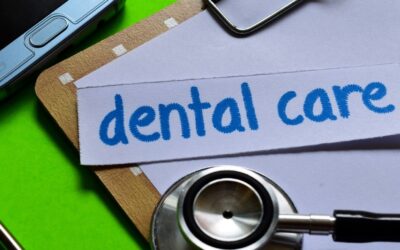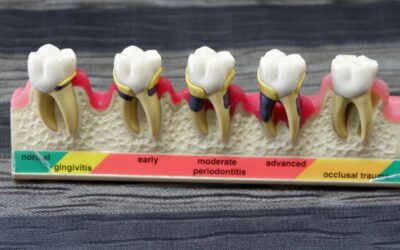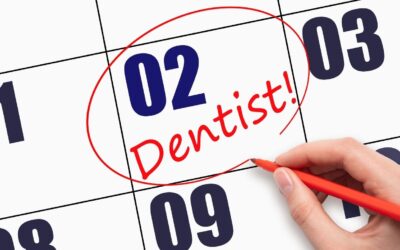Caffeine is one of the most consumed substances worldwide. For many, a cup of coffee in the morning is an essential part of their routine. However, if you’re about to undergo a dental procedure involving novocaine, you might be wondering how your caffeine intake could impact the effectiveness of the anesthesia. In this article, we’ll explore the science behind novocaine, how caffeine affects it, and why it’s crucial to be mindful of your caffeine consumption before a dental visit.
What is Novocaine and How Does It Work?
Novocaine (procaine) is a local anesthetic commonly used in dental procedures to numb specific areas of the mouth. It blocks nerve signals, preventing pain in the treated area. Novocaine is injected directly into the gums or tissue near the targeted area, and it typically begins to take effect within minutes. It works by inhibiting sodium channels, which are essential for nerve signal transmission. This makes it a highly effective method of preventing discomfort during dental procedures like fillings, extractions, and root canals.
However, there are several factors that can impact how well novocaine works. One of the most significant of these is caffeine, which can alter the effectiveness of novocaine and make dental procedures less comfortable.
How Caffeine Affects Novocaine’s Effectiveness
Caffeine has stimulating properties that can interfere with the numbing effects of novocaine. Here’s how caffeine can affect the anesthetic:
Caffeine and Blood Flow:
Caffeine is a vasoconstrictor, which means it constricts blood vessels. When you consume caffeine, your blood vessels narrow, reducing blood flow to specific areas, including the site of the novocaine injection. As a result, the anesthesia may not be absorbed as efficiently, which can reduce its effectiveness. The slower the absorption, the less effective the numbing will be.
Faster Metabolism of Novocaine:
Another factor to consider is how caffeine can increase the metabolism of drugs in your system, including novocaine. Caffeine is known to speed up your body’s ability to break down substances, which means it can cause novocaine to be metabolized faster. This results in the anesthesia wearing off more quickly, making it necessary for your dentist to use more anesthetic to maintain the desired level of numbness throughout the procedure.
Increased Sensitivity to Pain:
Caffeine stimulates the central nervous system, which can increase sensitivity to pain. Although caffeine doesn’t directly cause pain, its stimulating effect on the nervous system can amplify your perception of discomfort, making you feel more sensitive during the dental procedure. This can make the numbing effect of novocaine seem less potent.
The Impact of Caffeine on Your Dental Appointment
For individuals who drink caffeinated beverages regularly, the effects of caffeine on novocaine can be significant. Here’s a deeper look into how caffeine consumption might influence your dental visit.
Should You Avoid Caffeine Before Your Appointment?
It’s generally recommended to avoid caffeine for at least 6 hours before your dental procedure. This ensures that the novocaine has the best chance of working effectively. If you consume caffeine too close to your appointment, you may experience reduced anesthesia, leading to discomfort during the procedure.
How Much Caffeine Is Too Much?
Even moderate caffeine consumption can potentially affect the outcome of your dental procedure. If you’re someone who drinks coffee regularly, you don’t have to completely cut it out, but it’s essential to monitor your intake. A single cup of coffee or an energy drink might not drastically affect novocaine, but anything beyond that could.
Should You Consult Your Dentist About Caffeine?
Always inform your dentist about your caffeine habits, especially if you regularly consume large amounts before a visit. Your dentist may recommend adjusting the dosage of novocaine or advise you to avoid caffeine altogether prior to the procedure.
Why Does Caffeine Have These Effects?
Understanding the science behind caffeine’s interaction with novocaine can help clarify why it’s important to avoid it before dental procedures.
Caffeine as a Vasoconstrictor:
Caffeine works by constricting blood vessels. While this is helpful in some medical contexts, it can make it harder for novocaine to be absorbed by the tissues in the area being treated. As a result, the local anesthetic may not be able to numb the area as effectively, leading to a less-than-optimal experience during your procedure.
Caffeine’s Impact on the Nervous System:
Caffeine is a stimulant that affects the central nervous system. This can interfere with the way your body responds to novocaine. While novocaine numbs the nerves in a targeted area, caffeine can make your nervous system more reactive, potentially reducing the effectiveness of the anesthetic.
Increased Metabolism of Novocaine:
Caffeine can speed up the metabolism of novocaine in your system. As your body processes the anesthetic more quickly, the numbing effect fades sooner than anticipated, which may lead to a less comfortable procedure, especially during longer treatments.
Frequently Asked Questions (FAQs)
Q1: Can I drink coffee before getting a dental injection?
A: It’s best to avoid caffeine before a dental injection as it can reduce the effectiveness of novocaine.
Q2: How long before a dental appointment should I avoid caffeine?
A: Aim to avoid caffeine for at least 6 hours before your dental procedure for optimal results.
Q3: Will one cup of coffee affect novocaine?
A: One cup of coffee is unlikely to drastically affect novocaine, but it’s still advisable to limit caffeine intake before your appointment.
Q4: Can novocaine wear off faster if I drink caffeine?
A: Yes, caffeine can cause your body to metabolize novocaine faster, leading to a quicker loss of numbness.
Q5: Should I inform my dentist if I’ve consumed caffeine?
A: Yes, always inform your dentist about your caffeine consumption so they can adjust the anesthetic dosage if necessary.
Conclusion
In conclusion, caffeine can indeed affect the effectiveness of novocaine during dental procedures. By constricting blood vessels, increasing metabolism, and stimulating the nervous system, caffeine can reduce the potency of novocaine, leading to potential discomfort during treatment. To ensure that your dental appointment goes smoothly, it’s advisable to avoid caffeine for at least 6 hours before the procedure. Always consult your dentist if you have any concerns about your caffeine consumption and its impact on your dental anesthesia.



